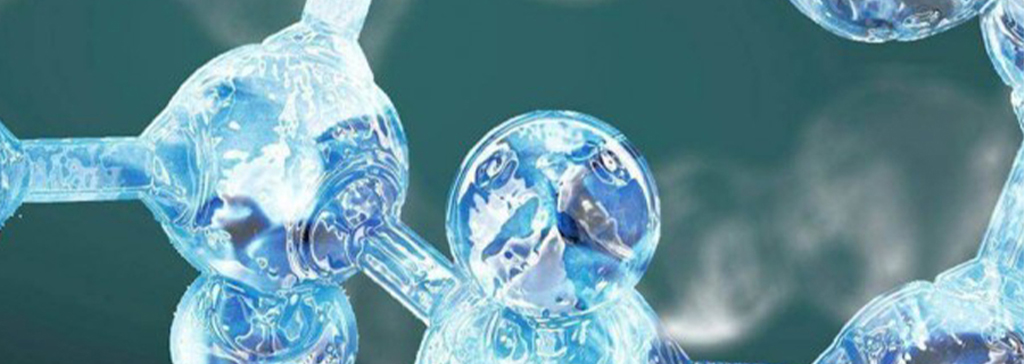
PRESENTATION
Team leader: Bertrand CUISSART
The team considers the entire data processing chain as its object of study and focuses on imposing fine-grained control on this process. In addition, we explore the ability to integrate external constraints, whether legal, ethical or physical. Our work revolves around three themes: control over the data, managing the search for the optimal model, and the intelligibility of the resulting model.
Key-words : constraint resolution, optimization, graph problems, data mining, natural language processing.
RESEARCH TOPICS
Since learning from data is typically modeled as an optimization problem, its resolution requires access to a reliable representation of the target reality. CoDaG is interested in cases where this reference is problematic by focusing on three research topics: unsupervised evaluation, the measurement of inter-rater agreement, and the use of ontologies to assess data quality.
Constraint programming, optimization and data mining are at the heart of the data processing process. On the one hand, constraint and combinatorial optimization methods are used to declare and solve data mining tasks. On the other hand, data can provide information that can improve a constraint resolution process. As a result, the development of methods that hybridize these three domains is attracting increasing interest in the communities concerned.
CoDaG is interested in the interactive consideration of user preferences in the data analysis process. This interaction can go in two directions. One can envisage an interaction from the system towards the user: a user acquires new knowledge from the results returned by the system. In the other direction, an interaction from the user towards the system: the system learns a user’s preferences based on a compromise between criteria derived from their feedback. The form that user feedback can take and how exactly it is exploited remain open subjects of study.
The following list should not be considered exhaustive but rather shows the applications to which CoDaG members return often:
- Biological and chemical data processing
- Analysis of sports data
- Digital humanities
ADDITIONAL INFORMATION
ALEC Céline – Associate professor at the University of Caen Normandie
BRETTO Alain – Full professor at the University of Caen Normandie
CREMILLEUX Bruno – Full professor at the University of Caen Normandie
CUISSART Bertrand – Associate professor at the University of Caen Normandie
LAMOTTE Jean-Luc – Full professor at the University of Caen Normandie
MARQUER Esteban – Associate Professor at the University of Caen Normandie
MATHET Yann – Associate professor (HDR) at the University of Caen Normandie
OUALI Abdelkader – Associate professor at the University of Caen Normandie
REYNAUD Justine – Associate professor at the University of Caen Normandie
RIOULT François – Associate professor (HDR) at the University of Caen Normandie
VAGINAY Athénaïs – Associate professor at the University of Caen Normandie
WIDLÖCHER Antoine – Associate professor at the University of Caen Normandie
ZIMMERMANN Albrecht – Associate professor at the University of Caen Normandie
BRUTUS Philippe – Associate researcher
BENGUIGUI Nicolas – Associate researcher
KASTNER Lise – Ph.D. student
LEJMI Maroua – Ph.D. student
LOUDNI Samir – Associate researcher
SAHBI Aya Nour-Elimane – Ph.D. student
SOUPLY Marc – Associate researcher
PANDORA (ANR IA, 2025-2029)
NEO-REEDUC (Normandy region – FEDER, 2023-2025)
Paprica (PHC Utique, 2022-2023)
CodeGNN (ANR IA, 2022-2026)
InvolvD (ANR IA, 2021-2025)
Herelles (ANR IA, 2020-2025)
Orange Labs, RMAN SYNC, Roullier (financial support for thesis and internships: 2018-2023)
Schism (Normandy region, 2021-2022)
INCA (Normandy region, 2019-2022)
RHuNes (CNRS + Maupertuis programme, 2021)
AIMS (FEDER, 2017-2020)
CPER Numnie (2016-2020), with the Hultech team
AGAC (Normandy region, 2017-2019), with the Image team
PepTraq (Normandy region, 2017-2019), with the MAD team
REUs (FUI, 2016-2019)
CIFRE convention with Huawei (2016-2019)
Imprimerie Nationale (2018)
Nareca (ANR Contint, 2013-2018)
QCM-BioChem a follow-up of Decade (CNRS MASTODONS, 2017-2018)
Minomics – Mining Omics data for chemistry (Normandy region, 2015-2017)
Prefute (CNRS PEPS, 2015-2016)
Hybride (ANR blanche, 2011-2016)
Adn’Tox (FEDER, 2012-2015)
The team has a strong attractiveness at the application level. This characteristic notably makes it possible to develop long-term interdisciplinary collaborations, which naturally inspire innovation. See “Projects” item and our publications.
KEY FACTS
2023:
New project : NEOREEDUC – 2023–2025. Project Région Normandie Collaboratif Innovation (22E05784) with the company NeoXperience (www.neoxperiences.com)
Thematic school “Complex sports data” (06/26/23-06/29/23) https://complex-sports-data.sciencesconf.org
2022:
DSChem project is a workshop at GDR MaDICS.
Workshop “Machine Learning and Data Mining for Sports Analytics” accepted at ECML/PKDD 2022.
Several members from CODAG are involved at ECML/PKDD 2022 : Journal Track co-chair, Workshop & Tutorial co-chair, PhD Forum co-chair, area chair, membres du comité de programme.
François Rioult was invited to participate in the Radio Phénix program “C’est pas faux” to discuss the scientific value of digital data.
Launch of the AMPERE project (2022/2025)
The thematic school “BigSportsData: Analysis of massive sports data”, organized by François Rioult and Albrecht Zimmermann took place from 27/06 to 30/06.
The CODAG team welcomes 6 new PhD students this year: Djawad Bekkoucha (HAISCODE thesis), Steve Gendarme (CIFRE thesis), Maroua Lejmi (co-supervision thesis), Lise Kastner (thesis on the AMPERE project), Neda Moradi (co-supervision thesis), Aya Nour Elimane Sahbi (ministerial thesis)
The CODAG team welcomes two new members: Jean-Luc Lamotte, University Professor in Computer Science, and Nicolas Benguigui, University Professor in STAPS.
I am text block. Click edit button to change this text. Lorem ipsum dolor sit amet, consectetur adipiscing elit. Ut elit tellus, luctus nec ullamcorper mattis, pulvinar dapibus leo.